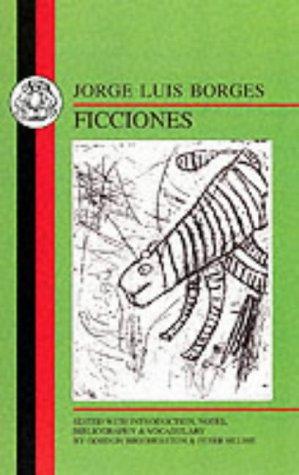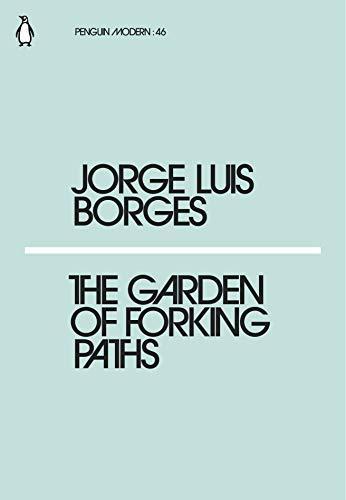Jorge Francisco Isidoro Luis Borges Acevedo (; Spanish: [ˈboɾxes] (listen); 24 August 1899 – 14 June 1986) was an Argentine short-story writer, essayist, poet, and translator, as well as a key figure in Spanish-language and international literature. His best-known books, Ficciones (Fictions) and El Aleph (The Aleph), published in the 1940s, are compilations of short stories interconnected by common themes, including dreams, labyrinths, philosophers, libraries, mirrors, fictional writers, and mythology. Borges's works have contributed to philosophical literature and the fantasy genre, and influenced the magic realist movement in 20th century Latin American literature. His late poems converse with such cultural figures as Spinoza, Camões, and Virgil. Born in Buenos Aires, Borges later moved with his family to Switzerland in 1914, where he studied at the Collège de Genève. The family travelled widely in Europe, including Spain. On his return to Argentina in 1921, Borges began publishing his poems and essays in surrealist literary journals. He also worked as a librarian and public lecturer. In 1955, he was appointed director of the National Public Library and professor of English Literature at the University of Buenos Aires. He became completely blind by the age of 55. Scholars have suggested that his progressive …
Jorge Luis Borges
Author details
- Aliases:
-
Hor hah Lu is Bor hes, คอร์เค ลุยส์ บอร์เคส, 豪尔赫 路易斯 博尔赫斯, and 98 others
B. Lynch Davis, لويس، خورخى،, כארכע לויס בארכעס, Chorche Louis Mporches, 豪尔赫·路易斯·博尔赫斯, Fra Diavolo, خورخي لويس بورخس،, Χόρχε Λουϊς Μπόρχες, Jorge Luis BORGES, Ch. A. Borches, Jorges Luis Borges, Gaspar Camerarius, जर्ज लुइस बोर्जेस, Chorche Louis Borches, Horhe L. Borhes, Luis Borges, होर्हे लुइस बोर्गेस, జార్జ్ లూయిస్ బోర్గర్స్, Horhe Luiss Borhess, Carlos Moritán, 博尔赫斯, Ch. L. Borches, Домек, Jorge Luis Borges Acevedo, Bustos Domecq, Georgius Ludovicus Borges, ხორხე ლუის ბორხესი, Chorche L. Borches, بورخيس، خورضى لويس،, Chórche Louïs Mpórches, ボルヘス, Isidoro Trejo, جارج لوئی بورخیس, ホルヘ・ルイス・ボルヘス, .. Borges, Chorche Luis Borches, B. Suarez Lynch, خورخه لوئیس بورخس, Jorge Luis Borhes, Jorge Luis Borges, J. Luis Borges, Jorge Francisco Isidoro Luis Borges Acevedo, جورج لويس بورجيز, Borges, H. Bustos Domecq, خورخي لويس بورخيس, Horhe Luis Borhes, Xorxe Luis Borxes, סורו סרדוי, Ḵūrḵī Luwīs Būrḵis, 博爾赫斯, Khūrkhī Lūwis Būrkhīs, Horhe Luïs Borhes, J. L Borges, J. L. ボルヘス, Manuel Pinedo, B. Suárez Lynch, Luis Horhe Borhes, Francisco Acevedo, Хорхе Луис Борхес, כארכע לואיס בורחס, ਜਾਰਜ ਲੁਇਸ ਬੋਰਜੇਸ, חורחה לואיס בארכעס, হোর্হে লুইস বোর্হেস, ஹோர்ஹே லூயிஸ் போர்கெஸ், بورخس، خورخى لويس،, Jorge Luis Borges y Acevedo, ホルヘ・ルイス ボルヘス, Χόρχε Λουίς Μπόρχες, Almotasim el-Maghrebi, Խորխե Լուիս Բորխես, H. Gering, Jorge-Luis Borges, ഹോർഹെ ലൂയി ബോർഹെ, جارج لوئی بورگیس, Bo er he si, Julio Platero Haedo, .. Būrḵis, Khorkhe Luyis Borkhes, Alboukassim el-Hadrami, xorxes.luis.borxes, B Suárez Lynch, חורחה לואיס בורחס, J. L. Borges, H. L. Borhes, 호르헤 루이스 보르헤스, Хорхэ Люіс Борхэс, خورخى لويس بورخيس،, Jorge L. Borges, Jorge Luis Borges y Avecedo, Honorio Bustos Domecq, خۆرخێ لویس بۆرخێس, Hao'erhe Luyisi Bo'erhesi, Suárez Miranda, Хорхе Луїс Борхес, J.L. Borges, Julio Haedo Haedo, Haoerhe Luyisi Boerhesi - Born:
- Aug. 24, 1899
- Died:
- June 14, 1986
External links
Jorge Francisco Isidoro Luis Borges Acevedo (; Spanish: [ˈboɾxes] (listen); 24 August 1899 – 14 June 1986) was an Argentine short-story writer, essayist, poet, and translator, as well as a key figure in Spanish-language and international literature. His best-known books, Ficciones (Fictions) and El Aleph (The Aleph), published in the 1940s, are compilations of short stories interconnected by common themes, including dreams, labyrinths, philosophers, libraries, mirrors, fictional writers, and mythology. Borges's works have contributed to philosophical literature and the fantasy genre, and influenced the magic realist movement in 20th century Latin American literature. His late poems converse with such cultural figures as Spinoza, Camões, and Virgil. Born in Buenos Aires, Borges later moved with his family to Switzerland in 1914, where he studied at the Collège de Genève. The family travelled widely in Europe, including Spain. On his return to Argentina in 1921, Borges began publishing his poems and essays in surrealist literary journals. He also worked as a librarian and public lecturer. In 1955, he was appointed director of the National Public Library and professor of English Literature at the University of Buenos Aires. He became completely blind by the age of 55. Scholars have suggested that his progressive blindness helped him to create innovative literary symbols through imagination. By the 1960s, his work was translated and published widely in the United States and Europe. Borges himself was fluent in several languages. In 1961, he came to international attention when he received the first Formentor Prize, which he shared with Samuel Beckett. In 1971, he won the Jerusalem Prize. His international reputation was consolidated in the 1960s, aided by his works being available in English, by the Latin American Boom and by the success of García Márquez's One Hundred Years of Solitude. He dedicated his final work, The Conspirators, to the city of Geneva, Switzerland. Writer and essayist J. M. Coetzee said of him: "He, more than anyone, renovated the language of fiction and thus opened the way to a remarkable generation of Spanish-American novelists."









